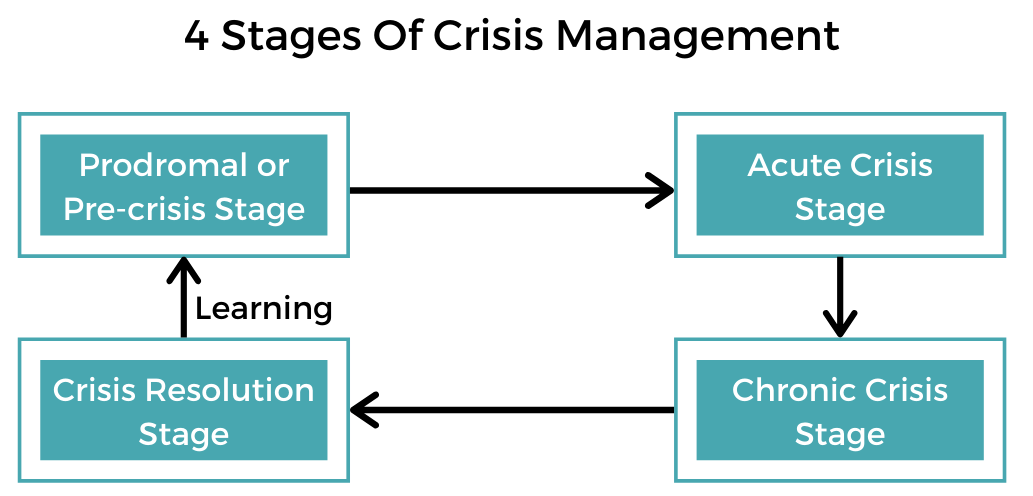Learnings from COVID-19
Let me start by saying this: Nobody is an expert in leading their team through the Coronavirus crisis. Yes, there are some incredible crisis management experts out there, and yes, the world has many, many amazing leaders.
But COVID-19 is literally a brand-new crisis and we have all had to learn to navigate the evolving landscape. So, to all the leaders out there - give yourself a break.
Because while you were sitting there, isolated in your home, trying to navigate this completely unknown and unprecedented situation, and wondering if there would be any toilet paper left when you went grocery shopping, so. were. we. all!
It was, and still is, a tough time to be a leader.
But right now, I’m feeling more connected to my team, more energised to succeed and more optimistic about the future than I did even before this all started. Don’t get me wrong. I went through all the stages - shock, denial, anger - but now I have emerged optimistic.
So, I wanted to share with you my tips on how to lead a thriving team through change. I hope that this framework gives you the confidence to continue to lead your team through this evolving situation and any future challenges you face.
The Framework: You and your team need a vision, a roadmap, and a win. Then, you need to consistently communicate this to them with heart.
Let me explain...
Have a Vision
All companies and teams will have slightly different business vision. That is what makes your team unique and has helped make you successful thus far - harness that. For example…
At Eloquent, our vision during COVID-19 was, and is, to stay connected with our colleagues, our clients, our suppliers and our managers. We’re about providing our extended community with confidence, reassurance, advice and support - to provide extreme value without any strings.
Providing this vision instills confidence in your employees. It gives them direction, support and encouragement to dig deep and get their job done during this time. When creating your company’s crisis vision, it’s important to encourage your team to share their suggestions and ideas too. This will ensure they are aligned and confident in your collective goal.
As a leader, you should also have your own goals - for your team and for yourself. For example…
At Eloquent, our team were all about being honest. Yes, I cried on the phone to my clients, my employees, and my boss – and so did they. Yes, I had to stand down employees, and yes, I had to talk about business finances – the good, the bad and the ugly.
And my goal for myself was simple: Get out there and lead.
Once you have a vision for your business during crisis, you can start to develop a roadmap on how to achieve your vision.
Create a roadmap
Experts have identified four phases of crisis management:
- Prodromal (Pre-crisis)
- Acute Crisis
- Chronic Crisis
- Crisis Resolution
Develop an action plan or roadmap that helps your team achieve their vision throughout these three phases. To do that, you might ask yourself these questions.

During Acute & Chronic Crisis
Things you will need to consider include:
- How do we “stop the bleeding”?
- What do our customers need right now? How can we help?
- How can we build new relationships and nurture existing ones?
- What can our team do to evolve faster?
- How can we adapt our offering, service or product?
- What new things can we try?
- How do we keep our team members employed?
During Crisis Resolution
Things will start to normalise, but they won’t be the same as they were before, so as well as the above questions consider:
- How do we move forward strategically?
- What are our main opportunities as a business?
- Where should we spend our money for the best return?
- How can we train and develop our existing team?
- When short-term solutions can we implement?
- How has our business model changed?
- What are the new opportunities available to our team?
- What is our new go-to-market strategy?
- How can we capitalise on the current growth market?
- What new skills do we need in our team?
Facilitate a win
During change and crisis, your team also need a win - or lots of small wins.
As they go through the rollercoaster of emotions a crisis or change situation is serving up, your team need to feel like they have achieved something good to bring them optimism and hope. Employees who don’t experience any success during this time will risk becoming unhappy, facing mental health challenges, and will likely experience a reduction in productivity and enthusiasm. It’s also likely they will move on from your company at the first chance they get.
Examples of “wins” might be a new customer signing a contract, a current customer singing your praises on how you’ve managed this crisis, or teams still hitting their goals and KPIs. However, these things aren’t always possible right now.
The good news is that you can help facilitate wins. Here’s what we did when transitioning to working from home during COVID-19:
- Implemented a technology that helped our team do their job effectively
Thank goodness for Zoom, it has been a godsend. - Held a virtual team award night
We presented awards for the great work our team had been doing over the difficult period. We even included some fun awards too. - Amplified a good news story
We received some great customer feedback and shared it with our team (and some news outlets for some positive PR). - Themed our team meetings
We chose a daily theme or activity for our team calls to keep things exciting. We tried a best dressed competition, team trivia, desk stretching, bring your dog to work day and so on.
Communicate with heart
Now you have a vision, roadmap and wins, it’s important to communicate these things with your team.
- Communicate more regularly and repeat yourself
It’s important to communicate the same message again and again. Reiterate your vision, your roadmap and recent wins. Instead of communicating with long stories, communicate in bullet points to make the message easy to grasp. - Ask the right questions and make your team feel heard
Listen with empathy to their stories and anxieties. Provide reassurance but don’t make promises that can’t be delivered. If you feel your employees need further mental health support, connect them with the right organisation. Here’s a list of Australia’s helplines and websites. - Be clear in your expectations
This is where your roadmap helps. - Continue one-on-one meetings
It can be easy to assume that because you’ve had a team meeting, everyone in your team has the answers they need. It’s still important to check in with individual members who may prefer one-to-one communication. - Use the right communication channels
Work through existing and familiar communication channels and identify the most appropriate channels to keep your employees informed of developments relevant to the company and allow them to ask questions or seek clarification.
I truly hope this roadmap helps you now, and with any future changes you and your team encounter. For more information or to chat about how to pivot your business’ marketing during times of change, please get in touch with our team at Eloquent.
Meet the author
Shannon Nieuwoudt (Class of 2005)
As General Manager at Eloquent Digital Marketing Agency, Griffith Business School Double Degree alumnus, Shannon Nieuwoudt helps ambitious companies achieve growth through digital marketing. Shannon began her career with Merlin Entertainments, marketing Sydney’s best tourist attractions including SEA LIFE Sydney Aquarium and Sydney Tower Eye, before moving onto the marketing team at Destination NSW. Shannon’s commercial and acquisition focused marketing mind led her to Eloquent Digital Marketing Agency, where their unique approach of combining sales psychology with high-performance digital marketing helps businesses win the hearts, minds and wallets of their ideal customers.
